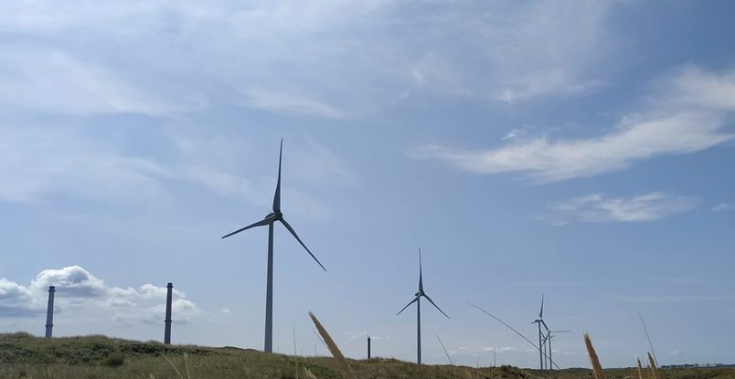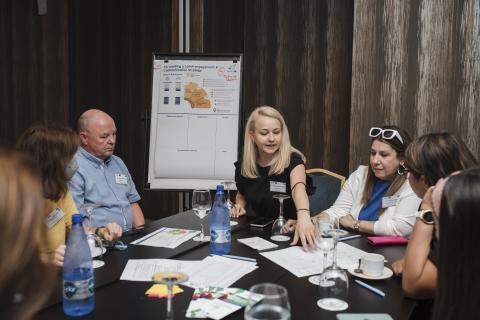Citizen participation models to increase local value creation for renewable energy

On 10 November 2022, the Policy Learning organised an online matchmaking on citizen participation models to increase local value creation for wind and other renewable energies.
Our expert on Low-carbon economy, Katharina Krell, moderated the session which was organised at the request of the county of Barnim, Germany and held completely in German!
The district administration of Barnim, Brandenburg, asked the Policy Learning Platform for support in addressing their regional policy challenge: The region has a large number of wind turbines, the majority of which are in the hands of non-regional investors. There is no regional value creation, which leads to rejection and a bad image of wind energy.
Together with the help of two peers, the district administration gained new insights into this challenge.
Discover their approaches and key takeaways below, or explore all insights in the follow-up note!
The peers
Achim Langer from the German-speaking region of East Belgium is the managing director of a mature renewable energy cooperative called Courant d'Air. The citizens' energy cooperative came into being when wind turbines were built locally, and citizens wanted to participate in the value creation. Motto: energy transition, but in citizens' hands.
The cooperative informs and raises awareness in order to increase the acceptance of renewable energies. The cooperative has implemented the first project on e-mobility and wants to develop further in this field. Courant d'Air has also established its own electricity provider to market electricity to members.
The North Hessian group of utility companies has developed and implemented a very successful model for regional value creation through cooperation. The model has resulted in a high level of local ownership by municipalities, utilities, and citizens' cooperatives.
The region started with a potential analysis of renewable energies with the result that mainly wind but also some PV can be used locally. The policy requirement was: regional value creation through own power generation! No purchasing from outside, self-use. In the land use plan, areas for wind were also designated in the forest, for example on areas with low biodiversity (spruce monoculture, calamity damage).
Through close cooperation with environmental associations, for example, BUND, and in cooperation with Bundesverband Windenergie (BWE), projects were discussed, and species support measures were jointly planned. In this way, greater acceptance was also achieved by environmental associations and lawsuits against wind projects were largely avoided.
Currently, in Brandenburg and Mecklenburg-Western Pomerania, the BWG only allocates land to the highest bidders. However, there is the possibility to design allocation guidelines in such a way that the land goes to local developers. Argument: 8 x more regional added value.
If 2.4% of the area is already occupied by existing plants, as is the case in Barnim and the Uckermark, repowering is an option for building up participation concepts. Here, too, the principle applies: whoever has the site wins the race. The owners of the sites could be approached, and the options discussed.
New options are also opening up in positive area planning for municipalities and districts. (go-to-areas at EU level). Mayors could join forces with counties to position themselves for future land use by local and regional owners to create local added value.
Key takeaways
Regional citizen participation models are far superior to foreign investors in terms of regional value creation in renewable energy projects. Experience in Northern Hesse has shown that the SUN model for wind farms in municipal ownership with the participation of citizens' energy cooperatives has a factor of 8 in regional value creation compared to foreign ownership.
The project developer who gets the site does the business. It is crucial to work with landowners of potential (wind or PV) sites to develop contract models that incentivise the landowner to favour local project development groups with local shareholders over the highest bidder for the land lease.
Find all insights and takeaways in the follow-up note.
Barnim-Online Matchmaking - Follow-up note
Barnim-Online Matchmaking - Follow-up note

Apply for a peer review!
Find solutions to your regional policy challenges with our experts and selected peers during a two-day peer review.
